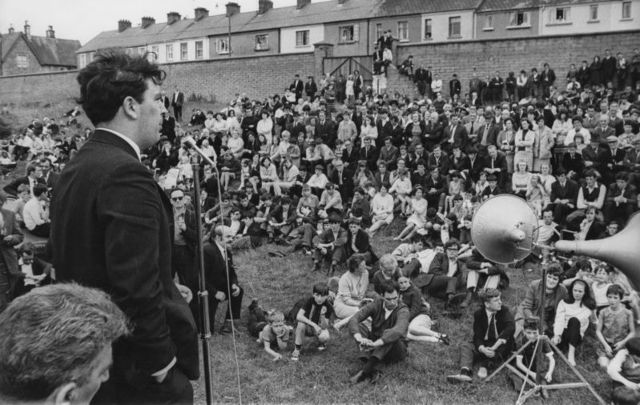John Hume's lifetime of work sets an example for those who want a united Ireland to follow, writes Ed Neafsey.
Seamus Heaney’s famous poem “The Cure of Troy” reads in part:
History says, don’t hope on this side of the grave
But then, once in a lifetime the longed-for tidal wave of justice can rise up
And hope and history rhyme.
John Hume’s brave and steadfast commitment to peace and reconciliation in Northern Ireland made hope and history rhyme. Irish President Michael Higgins said Hume "shined a light of hope throughout the darkness" of the Troubles. And he was an architect of the Belfast/Good Friday Peace Agreement (GFA) that ended it.
Hume is the only person to receive the Gandhi Peace Prize, the Martin Luther King, Jr. Peace Prize, and the Nobel Peace Prize. His legacy of non-violence, peace, and reconciliation has secured him a place in Irish history alongside the “Great Emancipator” Daniel O’Connell.
Hume was a leader in Northern Ireland’s civil rights movement - modeled on the nonviolent civil rights movement in the United States led by Dr. Martin Luther King, Jr. In accepting his Nobel Award, he called King one of his great heroes and ended his speech by saying “we shall overcome.”
Hume was a member of the British and European Parliaments, as well as Stormont. He was a constitutional nationalist. He believed a united Ireland could only be achieved with the consent of the people of Northern Ireland.
Hume called “consent” the peaceful and democratic way to win unity in an “agreed Ireland.” He convinced others - including the Sinn Féin political party - to embrace the principle of consent as the way to achieve a united Ireland.
Re-unification based upon “[c]onsent freely given north and south” is a keystone provision in the GFA. The GFA calls for a border poll to be held when it “appears likely” to the British Secretary of State for Northern Ireland that “a majority of those voting would express a wish that Northern Ireland should cease to be part of the United Kingdom and form a part of a united Ireland.”
It is unclear how far off that day will be? Before it arrives, however, more needs to be done to foster reconciliation and a shared society in Northern Ireland. Hume’s lifetime of work on these issues sets an example for all who seek unity to follow.
Hume showed the power of working together and building trust through, as he said, “spilling sweat not blood.” For this, Irish Americans who consider themselves to be "united Irelanders" should join me in expressing a heartfelt thank you.
This article was submitted to the IrishCentral contributors network by a member of the global Irish community. To become an IrishCentral contributor click here.




Comments